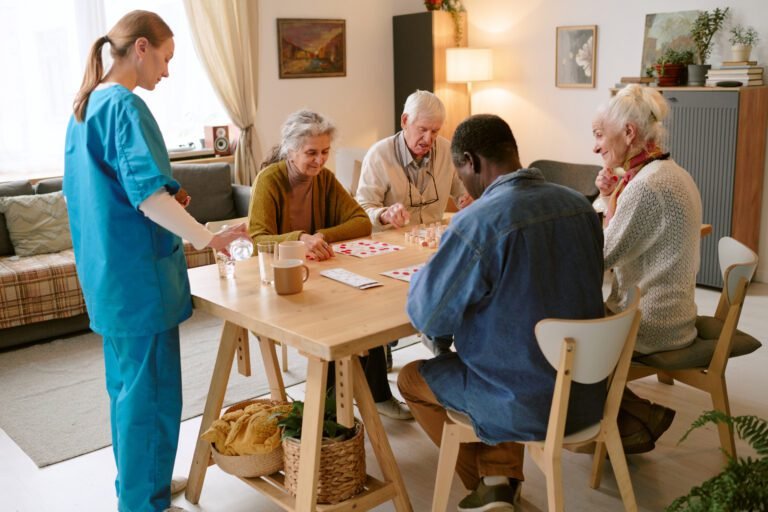Transitioning into an assisted living facility can be a significant decision for older adults and their families. While the primary focus is often on receiving necessary care, many are surprised to learn that such a move can lead to enhanced wellness in various aspects of life.
Physical Health and Mobility
Assisted living communities are designed to support residents’ physical well-being. Many facilities offer tailored wellness programs that include physical therapy, exercise classes, and regular health screenings. These programs aim to improve strength, balance, and overall mobility, which are crucial for preventing falls and maintaining independence. Activities like yoga and tai chi are commonly incorporated to enhance flexibility and coordination.
Mental and Cognitive Stimulation
Engaging the mind is vital for cognitive health. Assisted living communities often provide a variety of activities such as puzzles, games, and memory exercises that stimulate mental faculties. Additionally, some facilities offer specialized programs like reminiscence therapy, which can improve memory and reduce symptoms of depression in individuals with dementia.
Emotional Support and Mental Health
The emotional well-being of residents is a priority in assisted living settings. Many communities offer counseling services, support groups, and recreational activities that promote emotional health. These services help residents cope with the challenges of aging, fostering a sense of purpose and fulfillment.
Social Engagement and Community
Social interaction is a key component of wellness. Assisted living facilities provide numerous opportunities for residents to engage with peers through organized events, outings, and communal dining. These social activities help combat loneliness and isolation, which are common concerns among older adults. For those exploring options, https://cateredliving.com/abbey-manor/ offers a welcoming community with programs designed to promote social connection and holistic well-being.
Spiritual Well-being
For many, spiritual health is an integral part of overall wellness. Assisted living communities often accommodate spiritual needs by offering access to religious services, meditation sessions, and spaces for reflection. This support helps residents maintain a sense of peace and purpose in their daily lives.
Personalized Care and Support
One of the most significant benefits of assisted living is the personalized care provided to residents. Facilities assess individual needs and create customized care plans that address medical, physical, and emotional requirements. This tailored approach ensures that each resident receives the appropriate level of support, enhancing their overall quality of life.
Access to Nutritious Meals
Proper nutrition is essential for maintaining health. Assisted living communities typically offer chef-prepared meals designed to meet the specific nutritional needs of older adults. These meals not only promote physical health but also provide opportunities for socialization during communal dining experiences.
Safety and Security
Safety is a paramount concern in assisted living facilities. These communities are equipped with features such as emergency call systems, secure entrances, and staff available around the clock to ensure residents’ safety. This environment provides peace of mind for both residents and their families.
Enhanced Independence
Contrary to the misconception that assisted living limits independence, many residents find that the support provided actually enhances their autonomy. With assistance in daily tasks, individuals can focus on activities they enjoy, pursue hobbies, and maintain a sense of control over their lives.
Holistic Wellness Programs
Comprehensive wellness programs in assisted living facilities address all aspects of health: physical, mental, emotional, and social. These programs are designed to promote a balanced lifestyle, helping residents lead fulfilling lives as they age.
In conclusion, moving into an assisted living facility can be a transformative decision for older adults, leading to improved wellness across various dimensions of life. By providing tailored care, fostering social connections, and promoting physical and mental health, these communities enable seniors to thrive in their later years.


































